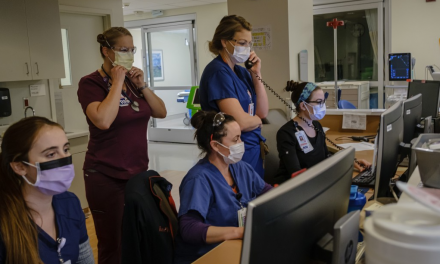Following is a guest post by Fr. Matthew Schneider, with his full bio posted at the end.
This piece will explore a very specific question: has the Church ever taught that a medicine being tested on fetal cell lines is a significant enough moral issue to skip that medicine?
I will cover three prerequisites, look at the various teachings on vaccines, then see if there are any other teachings on medicines in general, and end with on why this matters.
Prerequisites
Three prerequisites are key. First, what is the difference between Church teaching and theological opinion? Second, what could be meant by a moral issue? Finally, a limitation of this article.
Magisterium vs. Theological Opinion
There are things the Church says in official magisterial documents. These are official Church teachings. All we will deal with here are ordinary, not extraordinary magisterium so not infallible. However, given this is mainly contingent matter, an infallible definition is unlikely.
Then there are theological opinions which can vary. If the vast majority of good theologians through history – including canonized ones – agree that carries a weight just below the magisterium. If theologians disagree – either in the past or present – that carries much less weight. In general, things like a papal TV interview are in the category of theological opinion. When Benedict XVI wrote Jesus of Nazareth, he published it as Joseph Ratzinger to be sure it was understood as theological opinion.
One can have a theological opinion different from the ordinary magisterium, but an ecclesial spirit would require that it be stated as such not as “magisterium” or “Church teaching.” This is even more so if the Magisterium is silent on the topic. For example, there is no definitive teaching on adopting embryos left over from IVF cycles, but there are diverse theological opinions on the matter, and I would not condemn either side on this debate expressing their theological opinion. Donum Veritatis speaks of the right of a theologian to present such positions on matters not determined by Church teaching but asks him or her to indicate they are a theological opinion and not Church teaching.
A “Moral Issue”?
In a way, almost every act has negative moral consequences that could be considered a moral issue. But some are so small as to be functionally irrelevant in making moral decisions because they are so extremely remote.
For example, various lists are available online of companies that donate money to Planned Parenthood. That is a moral issue and one can use that list to avoid certain companies’ products, but one is not obliged to do so. But saying that shopping at a store carrying such products is a moral issue is something different. It could be considered a moral issue in a more abstract sense, but it is a stretch to call it a moral issue in the sense that it significantly impacts moral behavior. I cannot see many cases where it could be significant enough to reasonably boycott the store and go to another. This applies all the more when you realize that almost every grocery store carries at least one product from at least one of these companies (most carry many).
Melissa Moschella summarizes this distinction referring to “duty” rather than “moral issue,” but the essence is the same:
Now that HEK 293 exists and has become one of the most widely used cell lines for basic science research, is there any moral duty to avoid using it? I believe that the answer is no, or at least that the duty is no stronger than the duty not to use information derived from Kligman’s experimentation, and is probably weaker than the duty not to buy Energizer batteries, hold a Chase bank account, or engage in the multitude of other daily activities that actually constitute remote cooperation with evil—duties that are so weak and easily defeasible that in common language we would not call them duties at all.
The issue in the opening question is worded: “a significant enough moral issue to skip that medicine.” Thus, it speaks of a moral issue that is significant enough for some to skip but not significant enough that all Catholics must avoid it. It would also include issues where all must avoid but not an issue so minor that it was never even suggested one might want to avoid it. However, aside from one statement opposed to the ordinary magisterium, most don’t seem to argue that the Church forbids medicine tested on fetal cell lines.
This is relevant here as a teaching that scientists should not do a test is not a teaching that there is sufficient reason for a Catholic to skip this. By using a vaccine or other medicine, we merely remotely appropriate from (not cooperate with) whatever tests were done in the past on this medicine. Rather remote appropriation like this is rarely sufficient to move the needle on the ethics of an act more than a hair. You need the ethical analysis to move more than a hair to be “a significant enough moral issue to skip that medicine,” unless there were significant other issues that were the primarily argument against it or some completely ethically pure alternative existed (no completely ethically pure alternative exists in the USA or Canada for COVID).
Limitation: Just Fetal Cell Lines
This article will limit itself to the issue of fetal cell lines used in testing. I will not discuss other points people likely have for or against vaccination. It is already long, and I don’t want it to be longer.
Vatican Statements on Vaccines
The Vatican has made 4 statements on the ethics of vaccines. The Pontifical Academy for Life (PAL) – not magisterium – made statements in 2005 and 2017. The Congregation for the Doctrine of the Faith (CDF) – magisterium – made statements in 2008 and 2020. All but the 2017 statement clearly point to an ethical issue that may make Catholic choose not to use a vaccine grown on or produced using fetal cell lines. I cannot see any arguing that fetal cell line testing is “a significant enough moral issue to skip that medicine.”
As a slight aside, those before 2020 are dealing with vaccines grown on non-immortalized cell lines, while HEK293 the most common line used in COVID vaccines is immortalized. Immortalization would make the appropriation or cooperation slightly more remote as the line needs replacing much less frequently or possibly never, although such distinction is somewhat minor in the whole analysis.
2005 PAL Letter
The Pontifical Academy for Life noted: “The use of vaccines whose production is connected with procured abortion constitutes at least a mediate remote passive material cooperation to the abortion.” The rubella vaccine which is produced by being grown on a fetal cell line was the main vaccine in question. The statement refers to those PRODUCED on fetal cell lines not tested or researched on. In fact, the idea of testing or research of a vaccine on a fetal cell line does not even arise in the letter.
Dignitatis Personae, CDF 2008
Dignitas Personae in 2008 was the first magisterial document to address vaccines produced on fetal cell lines. The relevant quote:
Grave reasons may be morally proportionate to justify the use of such ‘biological material.’ Thus, for example, danger to the health of children could permit parents to use a vaccine which was DEVELOPED using cell lines of illicit origin, while keeping in mind that everyone has the duty to make known their disagreement and to ask that their healthcare system make other types of vaccines available. Moreover, in organizations where cell lines of illicit origin are being utilized, the responsibility of those who make the decision to use them is not the same as that of those who have no voice in such a decision.
Two things in this paragraph are worth noting.
First, “grave reasons” is being used to justify most using the rubella vaccine (part of the MMR) when rubella kills about 1 in 5,900 vs. 1 in 50-200 for COVID. If rubella is sufficiently grave, a disease 30x deadlier a fortiori has sufficiently grave reasons to justify its use.
Second, the word “developed” in English could be ambiguous as referring to production alone or also tests before production. However, versions in other languages make it crystal clear that “developed” means produced and does not include vaccines only tested on fetal cell lines. Italian: “un vaccino nella cui preparazione sono state utilizzate linee cellulari” (a vaccine in whose preparation cell lines are used). Spanish: “una vacuna elaborada con líneas celulares” (a vaccine constructed/fabricated with cell lines). After not seeing Latin on the Vatican site, I remembered Acta Apostolica Sede is online so I found it on AAS 100 (2008) 884: “vaccini permittere ad quod apparandum adhibitae sint lineae cellulares illicitae originis.” The key term here is “apparandum.” Apparo-are, the root word, translates as prepare in both ecclesial and classical Latin, which would not refer to testing in this context. (Those are the languages I’m familiar enough with to do translations myself, but Google translate versions of French, German, Portuguese, and Polish all seem to concur with them while Dutch seems possibly ambiguous like English.) With this preponderance of evidence, although in theory “developed” could be read as including testing or not, it is clear that the proper reading would not include testing. Thus, Dignitatis Personae does not speak of vaccines or other medicines tested on fetal cell lines.
2017 PAL Note
In 2017. the Pontifical Academy for Life went further arguing even those produced of fetal cell lines do not involve morally relevant cooperation. They state:
The technical characteristics of the production of the vaccines most commonly used in childhood lead us to exclude that there is a morally relevant cooperation between those who use these vaccines today and the practice of voluntary abortion. Hence, we believe that all clinically recommended vaccinations can be used with a clear conscience and that the use of such vaccines does not signify some sort of cooperation with voluntary abortion.
As PAL is not magisterial, this is a theological opinion. As a moral theologian, I would diverge a little from this opinion sticking closer to their 2005 letter and the two statements from the CDF. But the fact the PAL posted this indicates this theological opinion is orthodox and acceptable for other theologians to hold. If it is a position an orthodox theologian can hold, a fortiori, an orthodox theologian can hold a position that a significantly more remote connection with abortion via testing is not “morally relevant cooperation.” I would argue that growing a vaccine on a fetal cell line is “morally relevant cooperation” that may mean some boycott such vaccines, but testing a vaccine on one is not “morally relevant cooperation” for using the vaccine. (There is “morally relevant cooperation” for the one doing the tests.)
2020 CDF statement on COVID vaccines
The only magisterial statement I can see that might refer to vaccines tested on fetal cell lines is in this document: “It is morally acceptable to receive Covid-19 vaccines that have used cell lines from aborted fetuses in their research and production process.”
It says “research” not testing which likely involves testing but not necessarily. For example, the Institut Pasteur / Merck COVID vaccine was designed/developed on a fetal cell line but not produced on one. So, its ethics is between those grown on and those merely tested on. One could interpret this line of the CDF document to just refer to this production and vaccines like this one where fetal cell lines were involved in design, or also to testing. (This vaccine was abandoned about a month after the CDF document as it did not perform well in trials so it now academic. However, another vaccine with similar ethical issues to the Institut Pasteur / Merck vaccine has gotten its first emergency use authorizations and a few others are still in trials. No vaccine currently available in Canada or the US falls into this category.)
Later, after noting that vaccines are voluntary, it speaks of the ethics of those not vaccinating:
In any case, from the ethical point of view, the morality of vaccination depends not only on the duty to protect one’s own health, but also on the duty to pursue the common good. In the absence of other means to stop or even prevent the epidemic, the common good may recommend vaccination, especially to protect the weakest and most exposed. Those who, however, for reasons of conscience, refuse vaccines produced with cell lines from aborted fetuses, must do their utmost to avoid, by other prophylactic means and appropriate behavior, becoming vehicles for the transmission of the infectious agent. In particular, they must avoid any risk to the health of those who cannot be vaccinated for medical or other reasons, and who are the most vulnerable.
You may note all the things asked of those not vaccinating. It is also worth noting that it only foresees Catholics skipping vaccines produced/grown on fetal cell lines over remote cooperation, and thus indicates those could be boycotted by Catholics. It does not mention those developed using cell lines or those tested on cell lines. Vaccines tested on fetal cell lines had just been approved when this document was posted, so if the Vatican wanted to include them here, they could have. The exclusion of vaccines tested on fetal cell lines appears to be a conscious decision, not a mere afterthought.
The Vatican has to write for all countries, not just the USA. In some countries, vaccines are grown of a fetal cell line, like AstraZeneca’s, are the dominant or at times only one available. Thus, having it say something that applies more to the vaccine supply in country A than country B should not surprise us. (In the USA, we have 96% of doses not produced on fetal cell lines [Moderna & Pfizer].)
Other Documents
A few other documents are worth noting in passing.
In 2000, the PAL wrote a document on researchers using fetal cell lines but it does not address the end user like you or me at all.
The USCCB has made several notes. The USSCB is not magisterial but can be helpful for the various US bishops to indicate magisterially for their dioceses, where they can transform a USCCB statement to ordinary episcopal magisterium. When the USCCB spoke of the first COVID vaccines which were tested on fetal cell lines, it notes a connection which it immediately indicates is extremely remote. Then, they say these vaccines can be morally used without indicating Catholics should make some moral objection or anything similar. This is worth noting as they indicate a preference for these vaccines over Johnson & Johnson for this reason.
I could not find other places the Vatican dealt with fetal cell line testing on medicine more broadly not just for vaccines.
Conclusion
We return to the original question: “has the Church ever taught that a medicine being tested on fetal cell lines is a significant enough moral issue to skip that medicine?” Unless someone can show me a document I missed, the answer must be in the negative. The Church has either never dealt with using medicines tested on fetal cell lines, or has said, “It is morally acceptable,” depending on how you interpret “developed” in that sentence above.
Thus, it is in accurate to state the Church teaches being tested on fetal cell lines is a significant enough moral issue to skip any medication. I think one can hold this as a theological opinion, but one must state it as a theological opinion, not say it is magisterium.
Why This Matters
This matters because many people have stated their theological opinion as though it were Church teaching. This is very confusing to the faithful especially when done by people who are called to explain such things to the faithful. This also shows a lack of ecclesial spirit or dishonesty on their part in misrepresenting what the Church teaches.
For example, the National Catholic Bioethics Center (NCBC) vaccine exemption template letter states: “An individual Catholic may invoke Church teaching to refuse a vaccine developed or produced using abortion-derived cell lines.” As it has been established above that the Church has never taught there is a significant enough moral issue to refuse a medicine tested or developed on a fetal cell line, such a Catholic could only invoke Church teaching for “a vaccine produced using abortion-derived cell lines.” I fully support Catholics who make such a determination as ones not grown on a fetal cell line are available as a more ethical option. They repeat this on their resources for vaccine exemption. Both of these also make an error I noted prior: the make a point that they imply is true about all the vaccines, but is only true of the 4% of US doses that are grown on fetal cell lines. As they speak of “developed,” not “tested” here depending on their meaning, they may also fall into the same error of implication here as in one sense of the word “developed,” 96% of US vaccine doses fall into either category they give for refusing a vaccine.
In another NCBC statement, they claim: “The Church has consistently pointed out the ethical problems with vaccines produced and/or tested using abortion-derived cell lines. The Church has judged it permissible for people to either accept (under protest) or reject the use of such vaccines.” We have seen above that the Church has never “pointed out the ethical problems with vaccines tested using abortion-derived cell lines” for the end user. Furthermore, she has never asked for such vaccines to be used “under protest” as none of the statements above give any indication of that. The USCCB has sent a letter of protest regarding these, but there is a big difference between the two US bishops sent a letter of protest and every one of millions of Catholics individually needs to protest.
This error of saying the Church taught something she never taught was also repeated on the official NCBC podcast. (I listened to this while exercising and no transcript is available, so I won’t use direct quotations.)
The NCBC is free to hold this as a theological opinion and present it to the faithful as such. However, they should not present what is a theological opinion as if it were Church teaching. I personally question this theological opinion as a certain degree of appropriation of evil is impossible to avoid so should not become a reason for avoiding otherwise good acts. For example. I would question renouncing US citizenship because the original 13 colonies had legal slaves and testing on a fetal cell line is on that kind of level of remote appropriation.
This is also separate from any points about allowing conscience exemptions to respect individual consciences. The Church often supports conscience exemptions for theological opinions and even for things contrary to Church teaching so long as not directly contrary to natural law (Cf. Dignitatis Humanae on religious liberty). This is about forming the consciences of Catholics in what is Church teaching and what is theological opinion.
I do not intend to solely attack the NCBC here as I have seen similar things on popular Catholic websites and from clergy. However, the NCBC has a special importance in not misrepresenting Church teaching. I sent the NCBC a note asking for where the Church taught there is a moral problem for the end user with a vaccine or any other medicine tested on fetal cell lines on September 22, 2021 (they say they will get back in 5 business days), and I have not received a response. (If they read it, they can probably note that I copied and pasted it as the first draft of this article.) I am now publicly asking them to correct their statements or show me where I missed some teaching. It can be as simple as clarifying this is their theological opinion not Church teaching.
Conclusion
Church teaching clearly indicates that being grown on a fetal cell line is a significant enough moral issue that one is free to boycott a vaccine in certain circumstances, and it would seem to apply to other medicine if this came to pass. However, there is no Church teaching saying the same about vaccines or any other medicines if merely tested on fetal cell lines. This should lead US and Canadian Catholics to prefer the Moderna and Pfizer vaccines over those offered by Johnson & Johnson or Astraeneca (the last one only in Canada now). However, the astronomically remote connection with abortion is not a reason for a Catholic to skip the Moderna or Pfizer vaccine. If you want to see more about how remote this connection to abortion is, see these pieces.Even one of the NCBC statements I critiqued above notes, “Being vaccinated can be an act of charity that serves the common good.” In fact, I would go beyond “can be” to “Being vaccinated is, in the vast of majority of cases, an act of charity that serves the common good.”







Trackbacks/Pingbacks